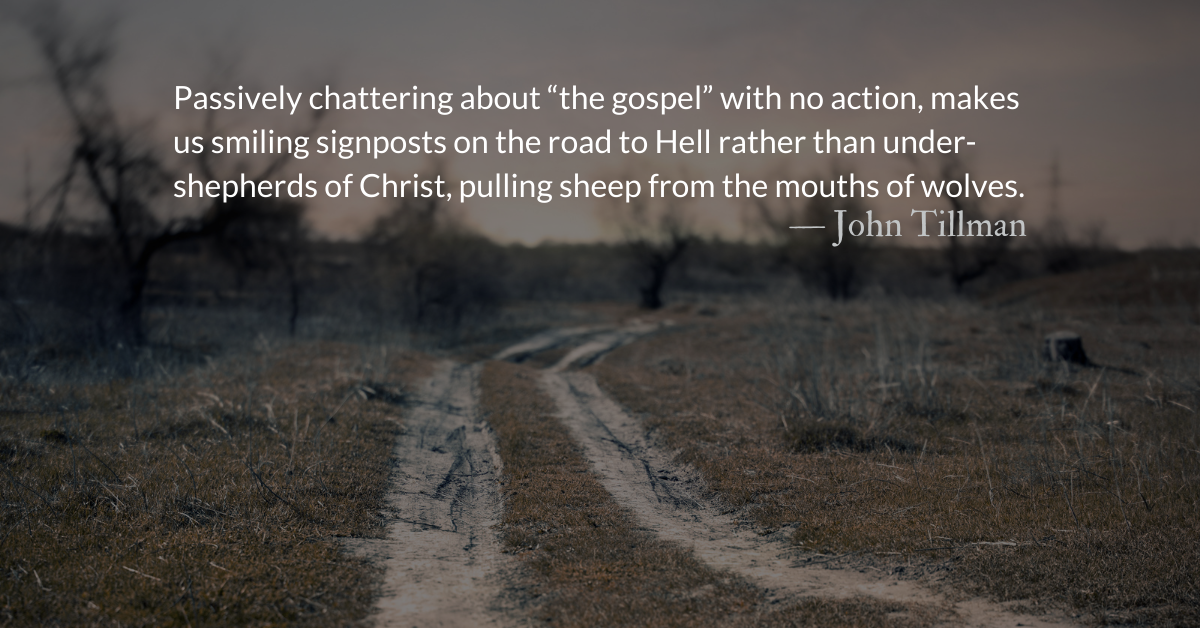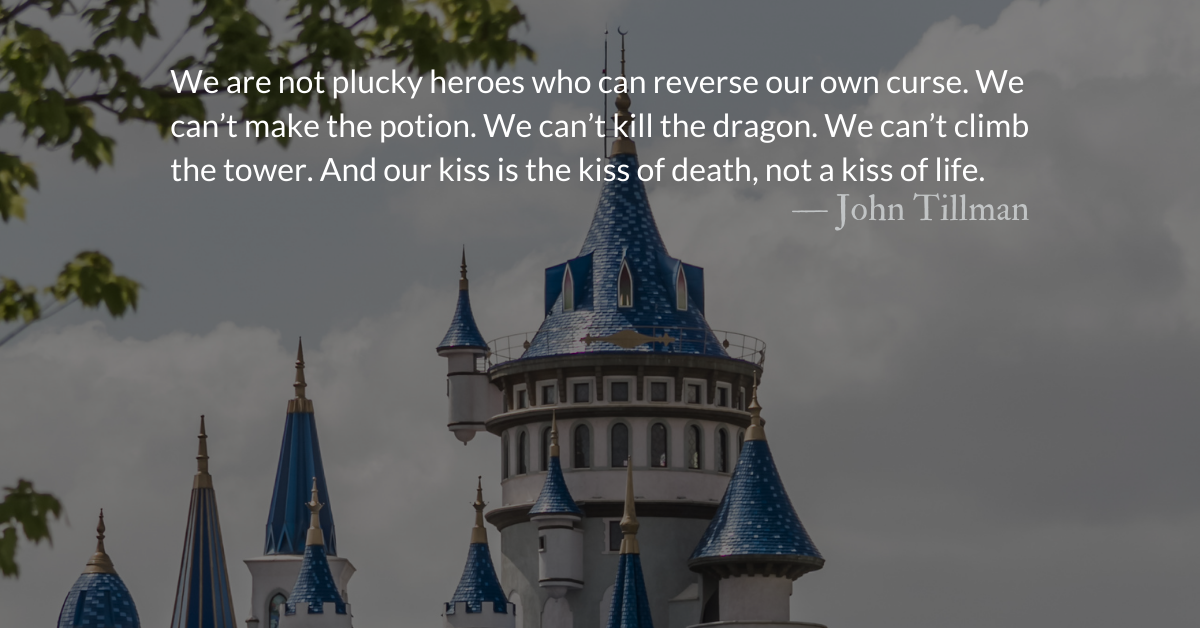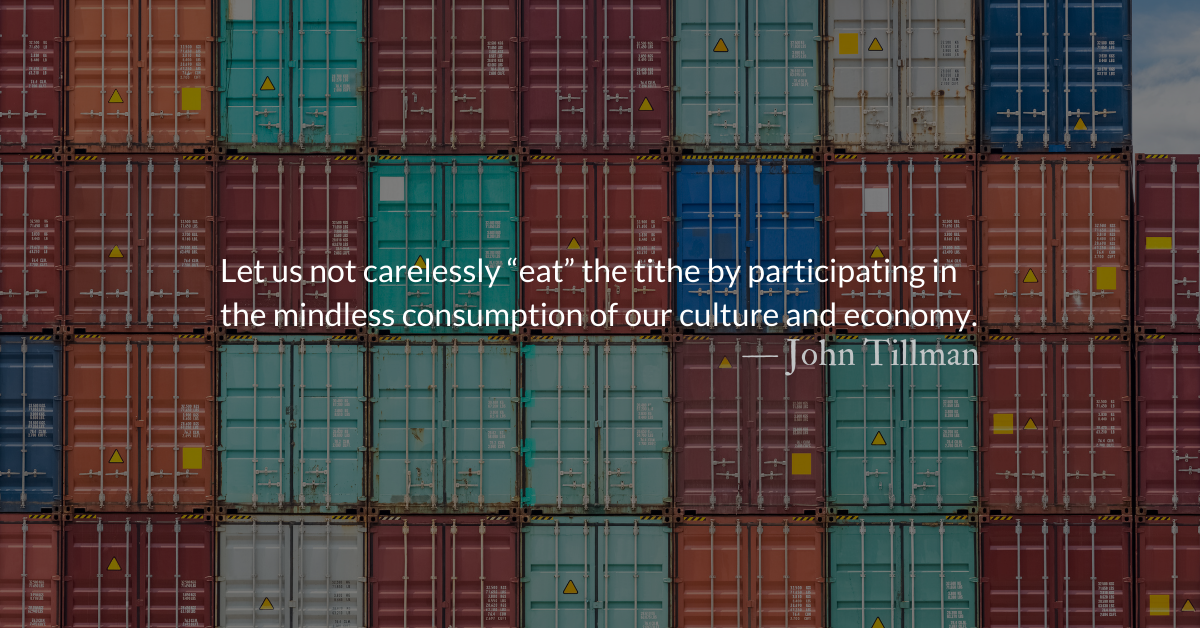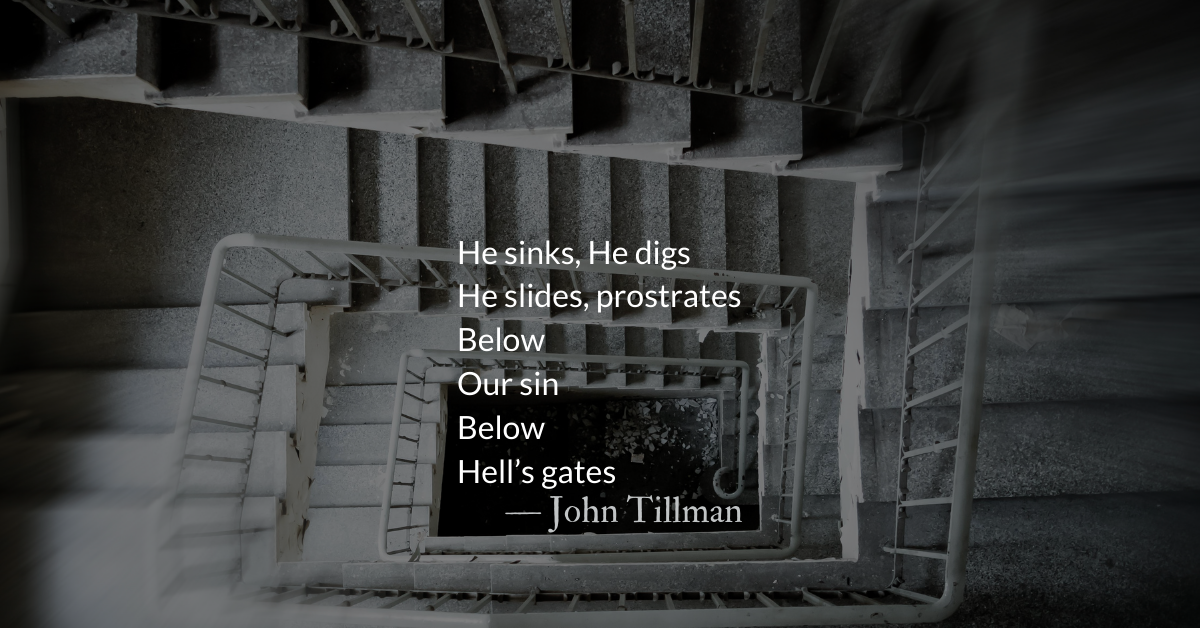Scripture Focus: Psalm 119.50-53, 61-64
50 My comfort in my suffering is this:
Your promise preserves my life.
51 The arrogant mock me unmercifully,
but I do not turn from your law.
52 I remember, Lord, your ancient laws,
and I find comfort in them.
53 Indignation grips me because of the wicked,
who have forsaken your law.
61 Though the wicked bind me with ropes,
I will not forget your law.
62 At midnight I rise to give you thanks
for your righteous laws.
63 I am a friend to all who fear you,
to all who follow your precepts.
64 The earth is filled with your love, Lord;
teach me your decrees.
Reflection: Make God’s Love Evident
By John Tillman
There is great wickedness in the world. Yet, in such a world, the psalmist proclaims God’s love, the power of God’s laws, and the strength of his desire to know God more deeply.
Even in a world in which a person may be bound with ropes, or separated from their family, or denied justice, or put into a cage, or killed for the convenience of others, or hung from a tree, or gunned down in a church… Even in such a world, the psalmist tells us, “God’s love is evident.”
Wickedness is evident but God’s love is also evident.
God’s love is evident in the many Christian and secular organizations that move, at times into dangerous circumstances, to help the downtrodden, the poor, and those purposely excluded from justice. Our God sends help to the helpless, no matter the owner of the goods, the ship, the truck, or the organization.
God’s love is evident in his promises to bring disaster upon nations that ignore their responsibilities to the poor and to the foreigner. An endlessly repeating biblical theme, especially in the Old Testament, is that God’s people are to be kind and compassionate to foreigners and the marginalized. Our God humbles nations addicted to greed—including His own.
God’s love is evident in God’s help and justice, but also in his presence. Our God is with those who suffer.
Only the suffering God can help. — Dietrich Bonhoeffer
Our God lies on concrete floors under aluminum blankets with abandoned children and ethnic minorities. He bleeds on the floor of a sanctuary with victimized worshipers. His body bears the wounds and scars of unjust captivity that are familiar to those brutalized by government forces.
God’s love is, of course, most fully evident in the gospel. However, passively chattering about “the gospel” in the face of evil, with no action, makes us smiling signposts on the road to Hell rather than under-shepherds of Christ, pulling sheep from the mouths of wolves.
The gospel is Christ’s frontal assault on wickedness. He storms Hell to set free its captives. We are Christ’s body in this world to carry out his righteousness.
Make God’s love evident. Reach out in God’s love in any way that is available to you, whether through financial means or political. Even giving a cup of water in the name of Christ to the least of these will be remembered.
Divine Hours Prayer: The Morning Psalm
But let the righteous be glad and rejoice before God; let them be merry and joyful.
Sing to God, sing praises to his Name; exalt him who rides upon the heavens; Yahweh is his Name, rejoice before him!
Father of orphans, defender of widows, God in his holy habitation! — Psalm 68.3-5
– Divine Hours prayers from The Divine Hours: Prayers for Springtime by Phyllis Tickle
Today’s Readings
Deuteronomy 29 (Listen – 4:14)
Psalm 119:49-72 (Listen – 15:14)
Read more about Spiritual Indicators
God holds his people responsible for the welfare of the poor, the foreigners, the widows, and the orphans.
Read more about The Sojourn of Sanctification
Those who had been exploited as foreigners were commanded to become a nation that blessed foreigners.











